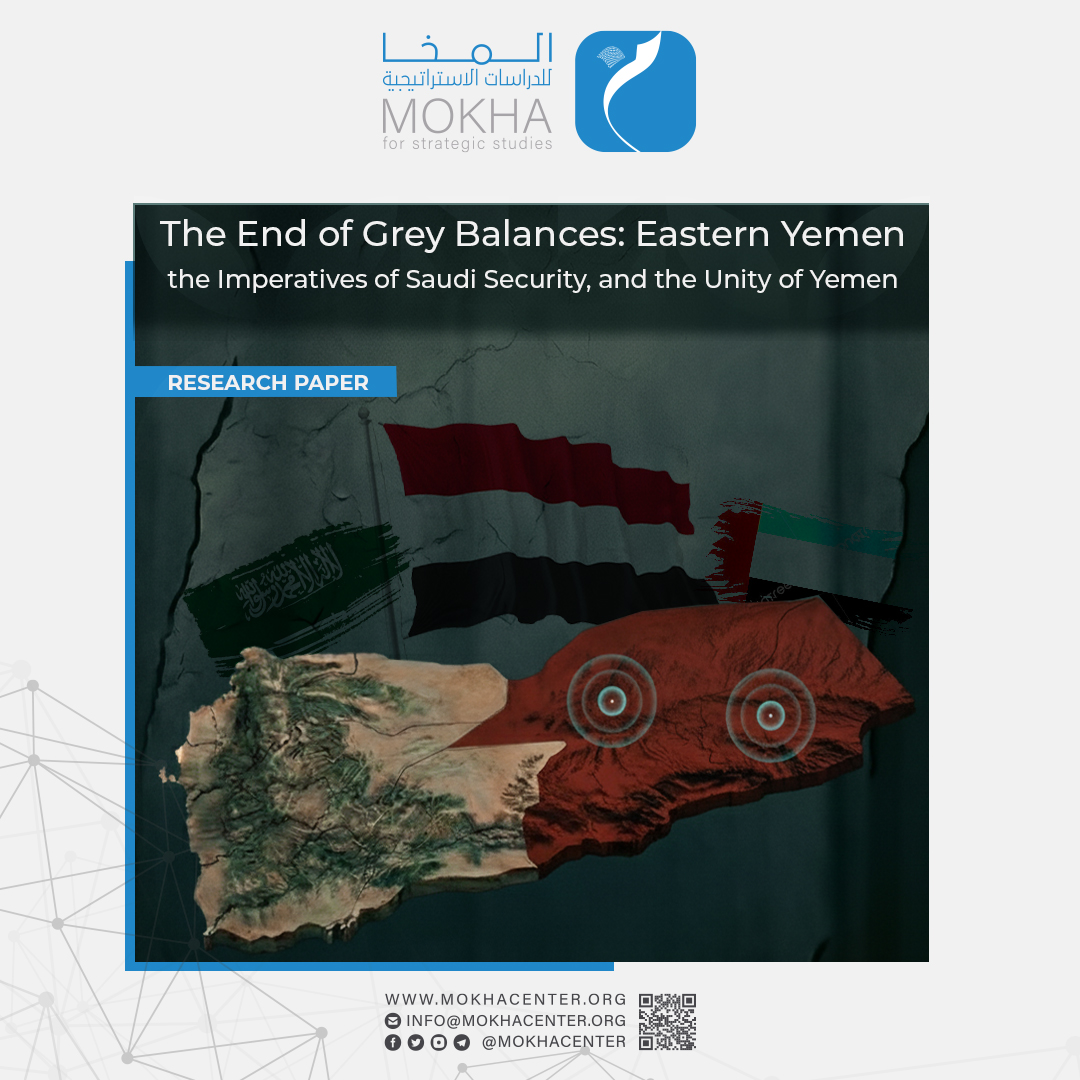U.S. Policies Toward the War in Yemen

The American approach to Yemen serves as a blueprint for navigating the complex dynamics of a nation struggling with conflict and instability. This conflict can escalate into a multi-sided regional crisis, posing a threat to regional security and stability and potentially jeopardizing global interests. This paper seeks to assess the policies pursued by the United States toward the ongoing war in Yemen, focusing on the period from late March 2015 to the present day and examining how these policies have influenced the path of the conflict and its broader dynamics.
Prewar:
Yemen, encompassing both its northern and southern regions, remained relatively low on the radar of American policymakers. The southern part, characterized by the political extremism of Aden’s authorities and its close ties to the Soviet Union during the Cold War, was often labeled as a “terrorist” state. The geopolitical dynamics of the Cold War era led to greater American interest in the North compared to the South, a perspective shared even by Saudi Arabia.
The unification of Yemen and its adoption of some democratic elements initially sparked an uptick in American interest. However, this enthusiasm waned when Yemen rejected the decision to join the war against Iraq following its invasion of Kuwait in 1990.
Subsequent events, such as the attack on the American destroyer USS Cole in the port of Aden on October 12, 2000, resulting in the deaths of 17 U.S. Navy personnel, and the aftermath of the September 11, 2001 attacks, further intensified American interest in Yemen. However, this interest primarily focused on security concerns, adopting a narrow and focused approach.
The United States has implemented a security-focused policy toward Yemen, centered on coordinating with Yemeni security authorities, pressuring them for information exchange, and reforming key institutions involved in the movement of people and goods in and out of Yemen. This includes departments such as the Personal Status and Passports Department, airport departments and the Coast Guard. Additionally, efforts have been made to establish direct relationships with certain tribes. At the same time, there has been a continuous presence in Yemeni airspace through the use of drones, with strikes targeting suspected individuals. Some of these strikes have resulted in the deaths of innocent civilians, as evidenced by the tragic missile strike on the village of Al-Majalah in Abyan Governorate on December 17, 2009, which claimed the lives of 41 civilians, including 14 women and 21 children. Moreover, political and social figures have been targeted, like the murder of Jaber Al-Shabwani, who was the deputy governor of Ma’rib and secretary-general of the local council in Ma’rib Governorate, on May 27, 2010.
These policies have had detrimental effects, undermining Yemen’s sovereignty and the legitimacy of its political regime. Furthermore, they have provided extremist groups with justifications to attract and recruit young people and have led to a diversion in targeting the army, security forces and state institutions under the pretext of the regime’s complete dependence on American policies.
In 2011, American involvement in Yemen’s political crisis emerged amid widespread popular protests and subsequent events. However, its focus remained on pressuring for a transfer of power while maintaining policies and institutions aimed at combating terrorism. Additionally, the Yemeni file was handed over to the Cooperation Council for the Arab Gulf States.
Yemeni parties accused the American administration of colluding with the Houthi group during its armed advancement toward the Yemeni capital, Sana’a. They applied significant pressure on President Abd Rabbuh Mansour Hadi to prevent him from ordering the army to defend the capital and intervene in the battles of the Houthi group in Dammaj, Amran, Hashid and the outskirts of Sana’a itself.
Following the Houthi group’s coup against the state on September 21, 2014, and its armed expansion to impose control over other regions, American drones were observed fighting alongside them and supporting their movement.
Resources
- Criticism of the Yemeni government regarding the killing of Al-Shabwani, Al-Jazeera Net, on 5/27/2010, available at the following link: https://n9.cl/v2862o
- Biden and the Yemen War: The Long Context of Shifts in the American Position, Sultan Al-Amer, SADA – Carnegie Endowment, on 4/1/2021, available at the following link: https://carnegieendowment.org/sada/84227
- Ahmed Youssef Ahmed, American policy towards the conflict in Yemen: Is there an effective role in resolving it? Presidency of the Council of Ministers, Information and Decision Support Center, available at the following link: https://www.idsc.gov.eg/Article/details/6872
- Trump complains that Saudi Arabia does not bear a fair share of the cost of America’s defense of it, Reuters, on 4/28/2017, available at the following link: https://www.reuters.com/article/idUSKBN17U209
- Ahmed Youssef Ahmed, American policy towards the conflict in Yemen: Is there an effective role in resolving it, a previously mentioned source.
- Same source.
- Analysts: Stopping fuel supplies is the beginning of lifting American support for the Yemen war, Al Jazeera Net, on 11/11/2018, available at the following link: https://n9.cl/jcyed
- The Senate fails to overturn Trump’s veto on the Yemen war, Al Jazeera Net, on 2/5/2019, available at the following link: https://n9.cl/uaepv
- “The absence of dignity and law” … Saudi Arabia is at the heart of Biden’s campaign for the presidency of America, Al Jazeera Net, on 2/5/2019, available at the following link: https://n9.cl/xd42h
- S. President Joe Biden announces that the United States will stop supporting military operations in Yemen, b. with me. bad. Arabic, on 4/2/2012, available at the following link: https://www.bbc.com/arabic/world-55936748
- A new American policy in Yemen … to ease tensions and end criticism (report), Anadolu Agency, on 2/22/2021, available at the following link: https://n9.cl/9m27n
- The Kingdom announces an initiative to end the Yemeni crisis and reach a comprehensive political solution, SPA – Saudi Press Agency, on 3/22/2021, available at the following link: https://www.spa.gov.sa/2205526
- Biden and the Houthi classification… The terrorist list is a stone’s throw away, Sky News Arabia, on 1/20/2022, available at the following link: https://n9.cl/y51n5
- Same source.
- Updates on efforts to reach an UN-sponsored road map to end the war in Yemen, Office of the Special Envoy of the UN Secretary-General for Yemen, on 12/23/2023, available at the following link: https://n9.cl/p1mpb
- An interview conducted by the paper’s author with a senior Yemeni security figure.
- The Houthis detain an Israeli ship and Tel Aviv: The incident is very serious, Al Jazeera Net, on 12/19/2023, available at the following link: https://n9.cl/1vw2t
- US Special Envoy for Yemen Lenderking travels to the Arabian Gulf, U.S. Department of State website, on 11/13/2023, available at the following link: https://n9.cl/xqw50
- Newspapers: Washington asked Beijing to help contain the Houthi attacks, D. W. Arabic, on 1/24/2024, available at the following link: https://n9.cl/0ir9l
- Biden: The United States delivered a special message to Iran regarding the Houthi attacks, Russia Today Arabic, on 1/13/2024, available at the following link: https://n9.cl/g0o58
- New American strikes against Houthi targets in Yemen, D. W. Arabic, on 1/18/2024, available at the following link: https://n9.cl/eh7w72
- The Security Council adopts a resolution condemning the Houthi attacks on ships in the Red Sea, United Nations website, on 10/1/2024, available at the following link: https://news.un.org/ar/story/2024/01/ 1127557
- Washington reclassifies the Houthi group as a “terrorist organization,” Al-Hurra Channel, on: 1/17/2024, available at the following link: https://n9.cl/evh2i
- Same source.
- American and British strikes on targets in Sanaa and Hodeida, and the Houthis threaten to respond, Al Jazeera Net, on 1/12/2024, available at the following link: https://n9.cl/wh29g
- Washington reclassifies the Houthis as a “terrorist group” and an American official: We will consider canceling the classification if the group stops its attacks on ships, Al-Masdar Online, on 1/17/2024, available at the following link: https://almasdaronline.com/articles/288870


Wow Thanks for this page i find it hard to get a hold of decent related information out there when it comes to this content appreciate for the guide website